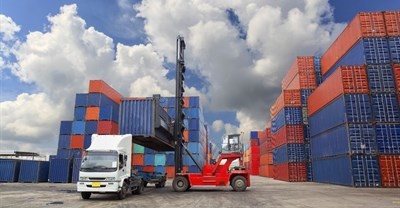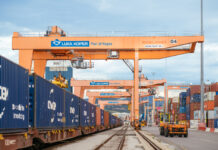
According to AP, it looks like tariffs are finally starting to show up in US consumer prices, with inflation rising 2.7% in June. Importers have spent the last five years learning to frontload shipments wherever possible (lessons learned from COVID, the Evergiven, wars, trade wars, and bad weather), which may have delayed the blow.
But that buffer’s now run out…and things may escalate. Based on latest reports (WSJ, Reuters), the EU is prepping retaliatory tariffs on US$84 billion in US goods, just as the US plans to hit both the EU and Mexico with 30% duties starting August 1.
Even with ongoing Suez Canal disruptions, falling demand has kept ocean rates under pressure. A weak peak season has driven spot prices down fast. Asia–US West Coast rates dropped 24% last week to US$2,369/FEU, while East Coast prices slid 5% to US$4,888/FEU. Asia–Mediterranean prices dipped 4% to US$3,802/FEU, though Asia–Northern Europe bucked the trend, climbing 4% to US$3,509/FEU. Carriers are reacting quickly, transpacific capacity has already been cut by nearly a quarter, as specified by Kuehne+Nagel.
According to Lloyd’s List, these low prices persist despite near-total rerouting around the Suez. In related news, the rescue operation for the crew from the Eternity, attacked by Houthi forces last week, has concluded. Of 25 crew members, ten were recovered from the sea, while six were reportedly taken hostage.
Further east, signs of a post-conflict rebuild are emerging. Syria just signed an US$800 million deal with UAE-based DP World to redevelop Tartous port in accordance with Maritime Gateway. This follows major infrastructure pacts like a 30-year CMA CGM agreement for Latakia and a US$7 billion energy deal, in part supported by eased US sanctions that create space for investment.
In air cargo, weak demand continues to weigh on rates. China–North America prices dropped 22% to US$4.34/kg, while China–North Europe held steady at US$3.35/kg. Rates from Northern Europe to North America fell 1% to US$1.79/kg. Still, confidence seems high in the long term—Qatar Airways announced a landmark order for up to 210 Boeing widebodies, with options for 50 more based on Boeing.
Written by Eytan Buchman, CMO, Freightos




